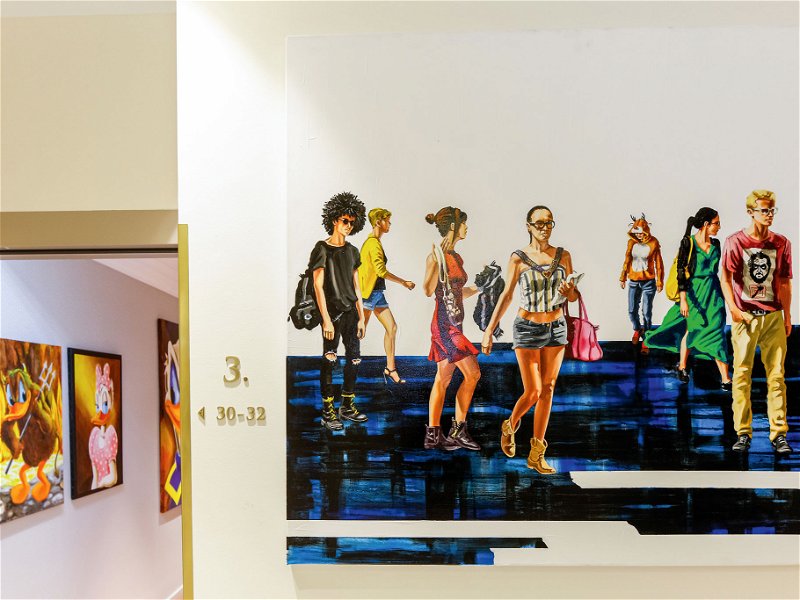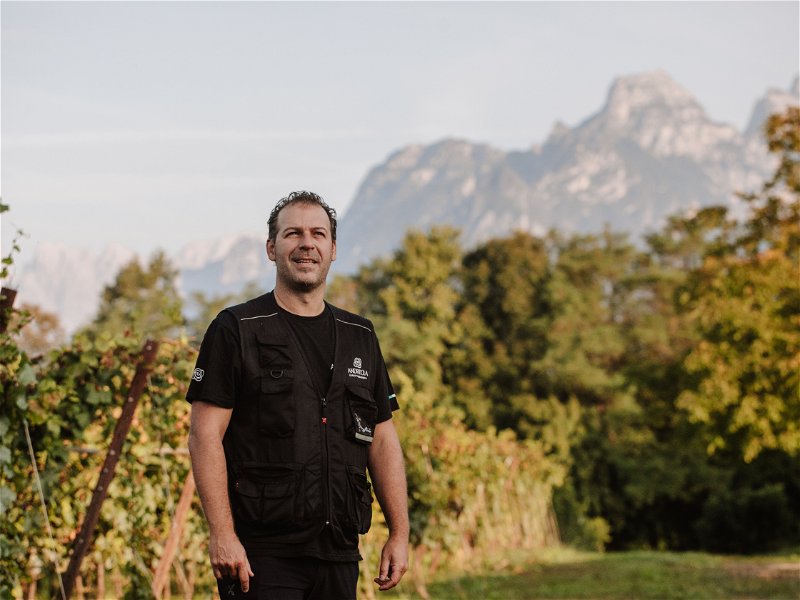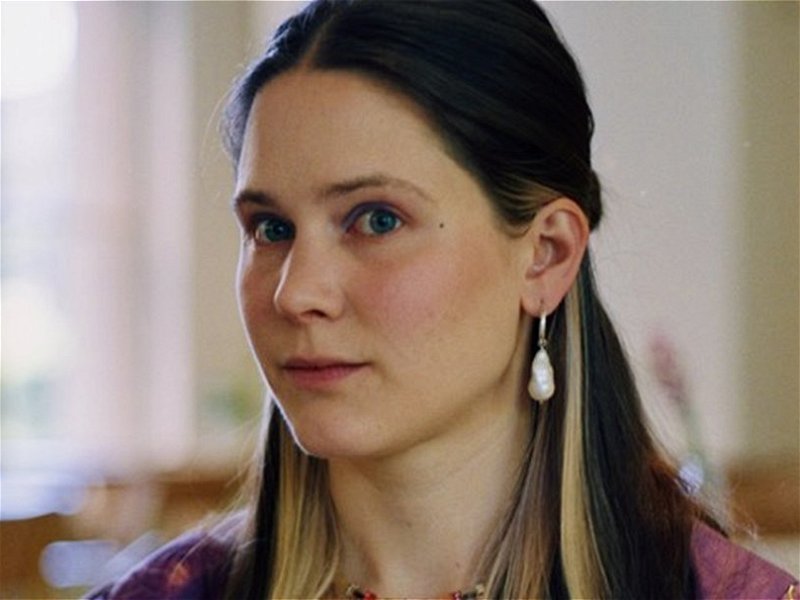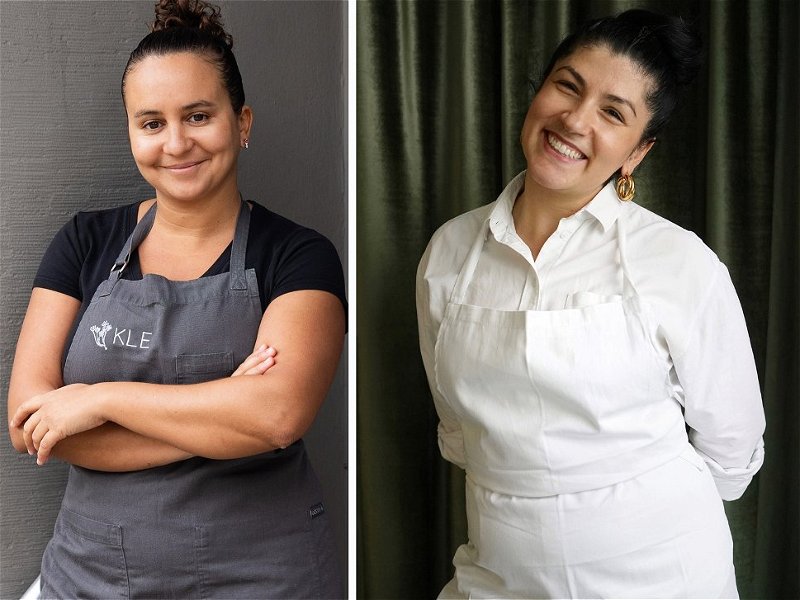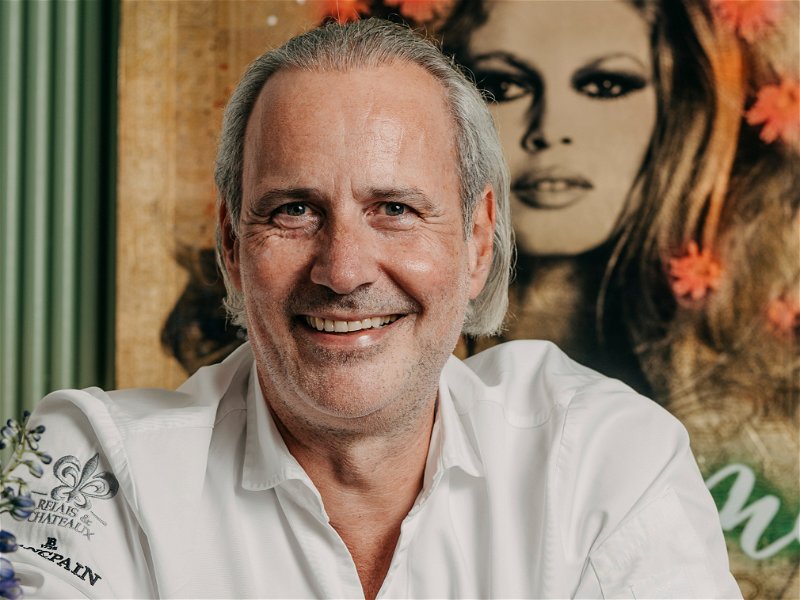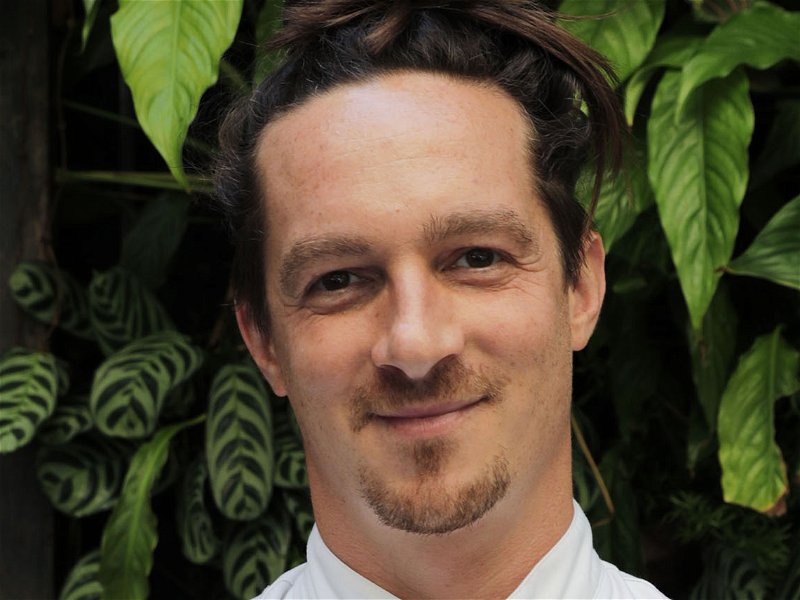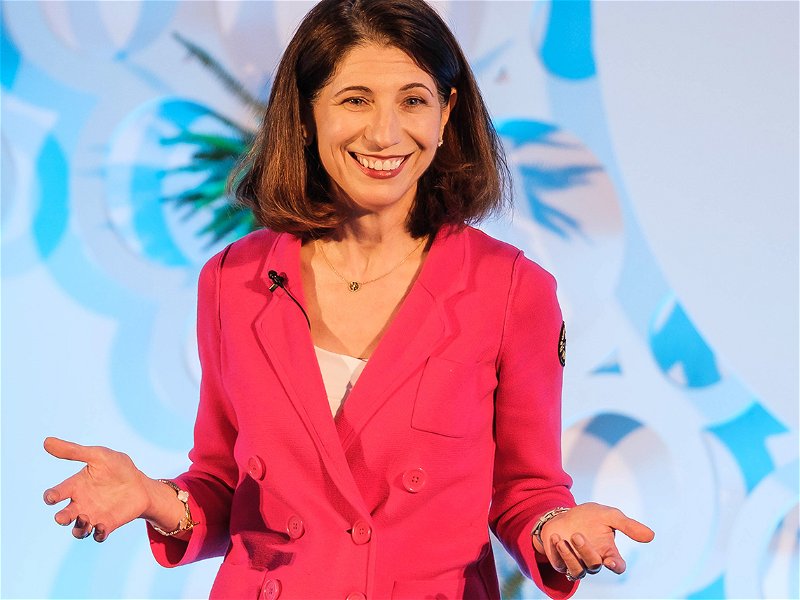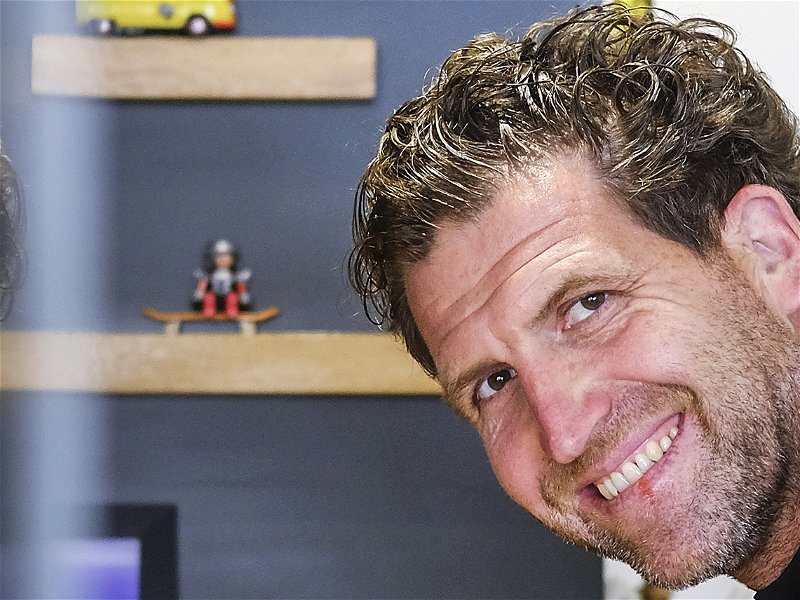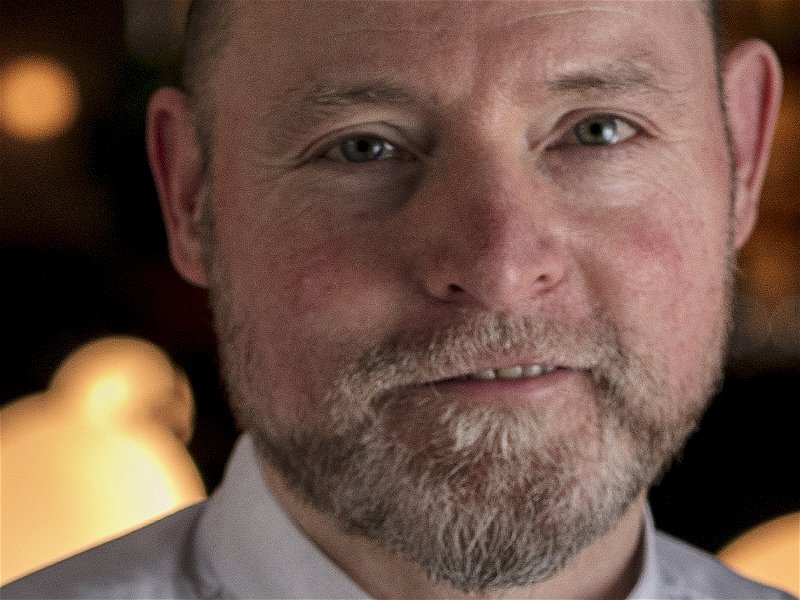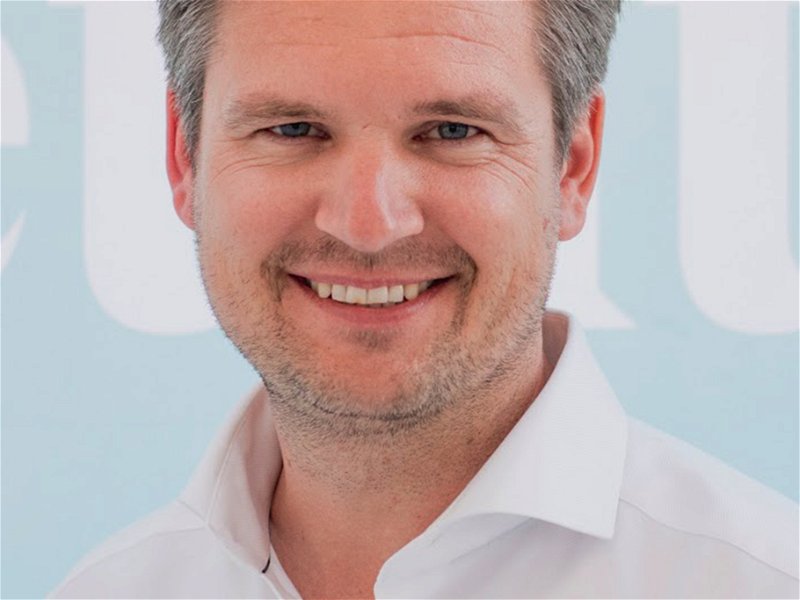Interview: Crocadon chef Dan Cox talks about his natural resources
With his farm-to-fork restaurant in South Cornwall, Dan Cox wants to bring back pre-chemical agriculture standards to food production.
Falstaff: Crocadon is not a typical restaurant, you live and work self-sufficiently. What are the difficulties in doing that?
Dan Cox: This is a very different project from any sort of restaurant that I´ve ever worked at or run before. I took on a farm here, not a restaurant – it's a 120-acre organic farm. When I first arrived, we had no power, no toilets, no hot water, all this kind of thing. I had to build slowly and I did pretty much everything on my own to begin with. I actually had to make the farm work, in terms of rotations and seasons, and what products I should produce. Everything is focused on the health of the soil and going beyond organic. I try to build a situation that actually regenerates and feeds itself in the right way.
You are producing everything on your own here?
There are always going to be products that we do need to bring in. We are in Cornwall, surrounded by the most beautiful coastlines. The fish and shellfish are definitely some of the highest quality you´ll ever find in the UK. We also do bring in mushrooms, a friend of mine grows incredible mushrooms not too far away from us here. But 95 per cent comes from inside the farm. We did lots of trial and error to see how we can improve; take the sheep as an example: in most of the restaurants, pretty much the only thing you have access to is lamb, because that´s the product of the general farming industry when it comes to sheep. But I always had this idea that we should be working with older sheep. At one point, I had twelve different breeds of sheep and did a lot of cross breeding. And it was the older, more heritage and rare breeds that tasted better and did much better outside, too. We just have everybody outside all winter, which also leads to more intense marbling and more fat cover on the meat as well. The meat no longer tastes like that lamb that everybody knows, it's more similar to beef or to venison. It becomes something truly exceptional. We are always going to try and find the best possible version of a product. Sometimes that can take years.
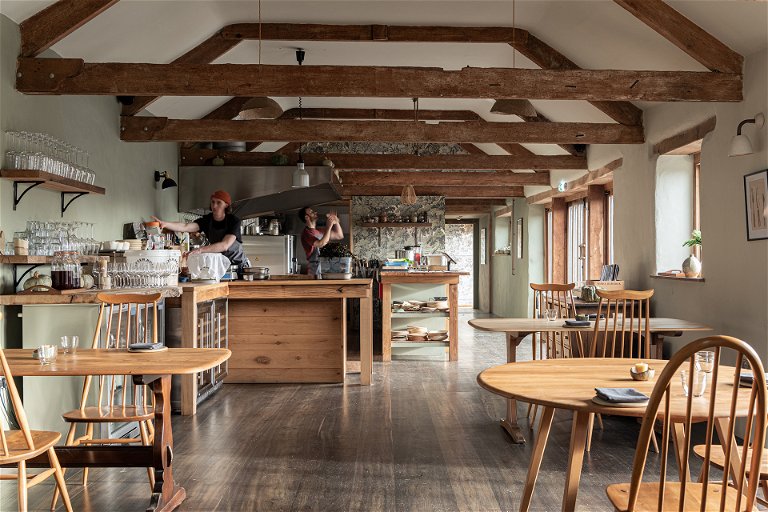
Has it been harder than you imagined?
Very much, yes. If you really want to know how these things could be done, then you have to do it yourself. Now I am at this point where I can bring other people in that share my goals and visions rather than trying to turn somebody else into that.
Do you think what you are doing here might be the future of gastronomy?
I think so. I'm not suggesting that all chefs go out and become farmers. But I think that if they can just get closer to that and develop relationships that aren’t just like taking exactly what the farmer gives, it is more like collaboration to try to push it. Because the farmer is never going to make a decision based on what the chef wants if it doesn’t bring a financial reward. In the nature of restaurants, everything is fast-paced and if we make a decision today, it changes tomorrow. But with farming, if we make a decision today, we don’t see the result for another year.
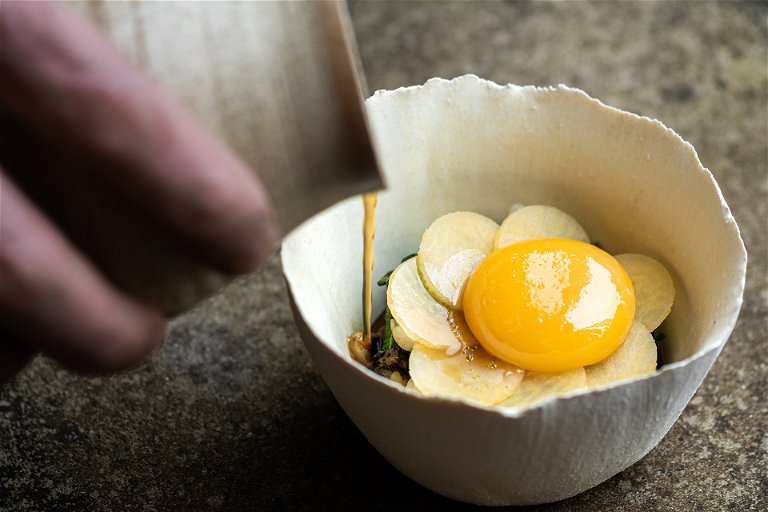
What role does animal welfare play in your plans?
For me, it is the most important thing imaginable. And the biggest key to animal welfare is to feed them well. A lot of the grazing or pasture management in the UK is essentially controlled starvation. And in terms of the actual pasture plants themselves, it's very common to see fields that have millimetres of pasture rather than something tall and healthy. Constantly over-grazing means the plants are under extreme stress all of the time. The way we get healthy soil is to have plants on top that are healthy because it's the power of the sun and the exchange of the plant that actually builds the soil below. If your plant is always stressed, your soil health will decline.
Which also leads to healthier animals?
If you´ve got poor soil, you´ve got poor plants and poor animals. We just let the plants grow because the top third is where all the nutrition is. The soil health is increased, the plant health is increased, and then the animal health has increased. Leading to increased flavour and nutrition for us.
This means that you have to move your sheep around more often?
Exactly. A common thing is called set stocking, where you just put all your animals in the field until it´s all gone, and then you move on to the next field. This is an unhealthy situation, leading to unhealthy animals. But if you take that field and split it into multiple sections, and you move them frequently, that leads to continual progression through the field rather than them just browsing the entire field continuously. This means the animal is consuming a diet that is much better for it. First of all, it will put on more fat; that is the crazy thing, the sheep becomes fat from eating pasture alone.
Did you think so much about the ingredients in the past?
I did. I´ve always been obsessed with produce. One of the turning points for me was when I worked at a restaurant in Catalonia which was just focused on the product. It excited me because it wasn´t necessarily about the cooking as a whole; it was more about the product. I had never seen fish of that quality or that fresh before. And with the veg, they would use local farmers to grow the most incredible things. Just everything was focused on the product. And that´s where this all starts, really. Coming back to the UK in 2008, it was very hard to find really incredible products.
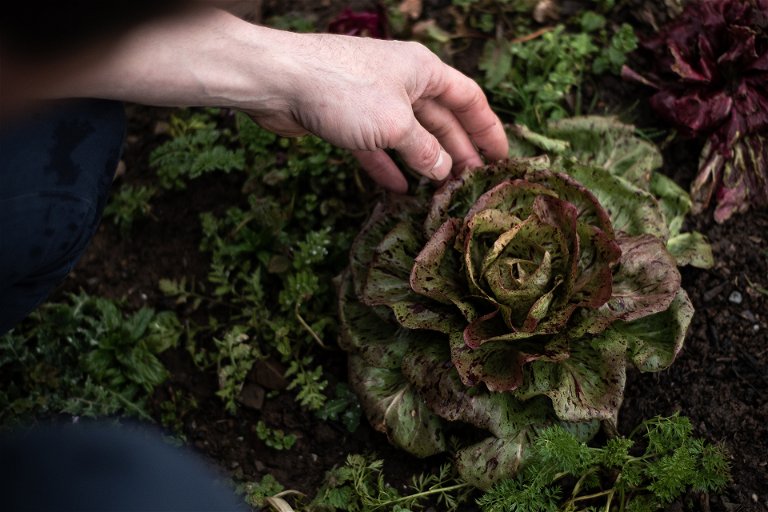
So what are your goals for the first year of the restaurant?
The main goal would be to try and operate a successful business. Farming is one thing, but to have the other end of it at the restaurant and actually be able to bring people to the farm to interact and to share the whole experience. It is really important for society as a whole to try to build that connection between food and the end result. I also want to ensure that everything that we do has an element of education and participation. We hope to do that through a series of events, bringing other chefs down to the farm to collaborate. They will be able to explore the bounty produce, have conversations and talk about the finer details of everything and then build a menu from that, cooking together to celebrate that moment of the season.
What do you think about the restaurant’s demography?
We want to try and attract a wide range of people. I think there are people that are really interested in this kind of farming and are able to have a special experience built around this style of farming. Obviously, you can go to any restaurant at a good level, but not very often do they disclose the agricultural ethos, or the source of all of their products. It´s often highlighting one or two things, and then you would assume that everything is in the same vein, but very often, it´s not the case. Being as transparent as we are is going to attract the kind of people that are searching for clean food. We are just looking back to the past and bringing back pre-chemical agriculture standards to food production.
What does the future hold for fine dining?
People will always be looking for a special dining experience and I believe that the future will be even more focused on the actual product and less on the formality of the experience. That is what we are trying to achieve here, we are taking a relaxed approach to service and the dining experience as a whole, but when it comes to the product itself we are going that bit further. At Crocadon you´re not coming to a grand hotel or a restaurant that was built with £10million. We are on a farm, and that's part of the experience. All products are of the highest quality, including the drinks, from the wines to the beers. We have our own brewery on site, and all of our wines come from a source of incredible agriculture; we don´t have bottles that cost thousands of pounds. We are going to deliver a high level of experience, just without all of the sort of pomp and formality that has previously come along with it. For fine dining, being focused on high-quality products and delivering a special experience is key. Taking yourself too seriously is something that will become less and less.
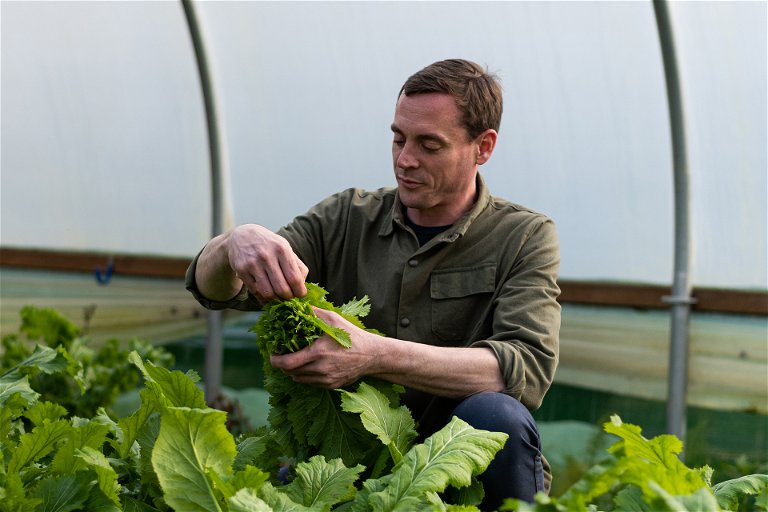
Do you plan to build a whole ecosystem around the farm and the restaurant, like cooking courses?
Not necessarily cooking courses to start with but in terms of the other elements: for example, we have our own pottery on site; we make all our own ceramics, and we have other people coming in to help us with that. We have got some incredible people here right now making things. That can give the people that are involved additional income streams. We have the space and we have the ingredients for them to experiment. Allowing other people to come in and experience things that they just couldn´t do in their own situation or in a more urban situation. Burning different plants and animal bones to produce natural ash glazes has been our most recent obsession.
About Dan Cox
Dan Cox is the chef and owner of Crocadon in St Mellion, Cornwall, which opened on February 3. The restaurant is located on a 120-acre organic farm. Cox took over the farm in 2017 and has been working on growing plants and breeding livestock. Cox, born in London, won the Roux Scholarship in 2008 at the age of 26. He spent time at Can Fabes near Barcelona and later worked at a luxury hotel in Switzerland. He learned about farm-to-plate methods in Cumbria and worked with Simon Rogan, and was executive chef at Fera, a London restaurant of the Simon Rogan Group.




